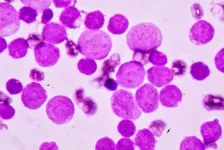(Press-News.org) January 22, 2021 - Patients with substance use disorders (SUDs) being treated for serious medical conditions are more likely to leave the hospital against medical advice (AMA) than those without addiction. A special type of contract with healthcare providers might enable patients to consent in advance to life-saving medical care - even if they later refuse treatment, according to a commentary in the Journal of Addiction Medicine, the official journal of the American Society of Addiction Medicine (ASAM). The journal is published in the Lippincott portfolio by Wolters Kluwer.
The Substance Use Advance Directive (SUAD) "has the potential to greatly improve the current state of treatment for life-threatening comorbid conditions in SUD patients through reducing AMA discharges," writes Paul Tobias, MD, JD, MBA, of Ohio Health, Columbus.
But in an accompanying commentary, Kelly K. Dineen, JD, PhD, of Creighton University, Omaha, Neb., cites "obvious practical and ethical challenges" to the SUAD concept, including the lack of any legal basis for overruling patients if they later decide to refuse treatment: "As long as a patient has capacity, they almost always have the final say in consenting to or refusing care."
'Ulysses contracts' for hospitalized patients with SUDs: Consenting to care in advance
Dr. Tobias describes the case of "Jane," a young woman with serious infections related to injection drug use, who was repeatedly hospitalized - but each time, left the hospital without completing treatment. It's a familiar scenario, reflecting the increased rate of AMA discharge among hospitalized patients with SUDs.
Patients always have the right to make decisions about medical treatments, as long as they're not being coerced. However, the "irrationally self-harming decisions" sometimes made by patients with SUDs "[echo] the patterns seen in cases of coercion," according to Dr. Tobias. "By acknowledging SUD as an acting force that is beyond the control of the patient, the reason becomes clear: these patients cannot exercise free choice because their SUD coerces them to make unreasonable decisions."
He proposes SUADs as an option to manage these difficult situations. SUADs are similar to psychiatric advance directives used in patients with psychiatric disorders such as schizophrenia, who know they might lose their decision-making capacity in the future. These specialized instruments are sometimes called "Ulysses contracts" - referring to the story in the Odyssey where Ulysses orders his ship's crew to tie to him to the mast, instructing them not to release him even if he begs them to.
"Ulysses contracts could be applied to patients like Jane by allowing patients who seek treatment of their life-threatening comorbid conditions to choose if and how their physicians can compel them to complete therapy," Dr. Tobias writes. Patients and healthcare providers could follow a shared decision-making approach to determining treatments for SUD and other medical conditions - including the conditions under which patients want to be kept in the hospital without the option of AMA discharge.
In her commentary, Dr. Dineen's key objection to SUADs is that unlike Ulysses contracts used in patients with psychiatric disorders, the proposed SUADs would be applied to people who still have decision-making capacity. She also notes that hospitalized patients with addiction often receive inadequate or no treatment for SUD, including medications for withdrawal symptoms - despite the documented improvement in outcomes - and that this inadequate care is often the cause of AMA discharges. Dr. Dineen also points out the long history of "moralistic, punitive, and discriminatory attitudes and policies," leading to "separate but unequal systems of care" for people with SUDs who are at particular risk for having their autonomy removed.
Dr. Tobias acknowledges the complexities of the SUAD approach. He emphasizes the need for evaluation of state policies "to determine whether the use of SUADs would enable better outcomes with improved patient autonomy and clear physician and nurse responsibilities when patient treatment decisions change."
"Patients with SUD have too long carried the burden of structural and institutional discrimination on the basis of their disease," Dr. Dineen concludes. "Focusing on correcting those is far more just than inflicting more individual harm under the cloak of beneficence."
Richard Saitz MD, MPH, FACP, DFASAM, Editor-in-Chief, Journal of Addiction Medicine, also voices reservations about SUADs: "There are serious concerns with an approach that would override a patient's decision when they have capacity to make it, particularly when that patient (one with addiction) belongs to a class of patients who have been stigmatized, whose autonomy is often taken away, and whose treatment for addiction is often of poor quality."
INFORMATION:
Click here to read "How Advance Directives Help When Patients Refuse Life-saving Treatment Because of Their Substance Use."
DOI: 10.1097/ADM.0000000000000799
Click here to read "It is Not the Patient, It is the System: Commentary on 'How Advanced Directives Help When Patients Refuse Life-saving Treatment Because of Their Substance Use.'"
DOI: 10.1097/ADM.0000000000000800
INFORMATION:
About Journal of Addiction Medicine
The mission of Journal of Addiction Medicine, the official journal of the American Society of Addiction Medicine, is to promote excellence in the practice of addiction medicine and in clinical research as well as to support Addiction Medicine as a mainstream medical specialty. Published six times a year, the Journal is designed for all physicians and other mental health professionals who need to keep up-to-date with the treatment of addiction. Under the guidance of an esteemed Editorial Board, peer-reviewed articles published in the Journal focus on developments in addiction medicine as well as on treatment innovations and ethical, economic, forensic, and social topics. Visit us on the web at http://www.JournalAddictionMedicine.com.
About The American Society of Addiction Medicine
The American Society of Addiction Medicine (ASAM) is a professional society representing more than 6000 physicians, clinicians, and associated professionals in the field of addiction medicine. ASAM is dedicated to increasing access and improving the quality of addiction treatment, educating physicians and the public, supporting research and prevention, and promoting the appropriate role of physicians in the care of patients with addiction. Visit us on the web at http://www.ASAM.org; follow @ASAMorg on Twitter.
About Wolters Kluwer
Wolters Kluwer (WKL) is a global leader in professional information, software solutions, and services for the clinicians, nurses, accountants, lawyers, and tax, finance, audit, risk, compliance, and regulatory sectors. We help our customers make critical decisions every day by providing expert solutions that combine deep domain knowledge with advanced technology and services.
Wolters Kluwer reported 2019 annual revenues of €4.6 billion. The group serves customers in over 180 countries, maintains operations in over 40 countries, and employs approximately 19,000 people worldwide. The company is headquartered in Alphen aan den Rijn, the Netherlands.
Wolters Kluwer provides trusted clinical technology and evidence-based solutions that engage clinicians, patients, researchers and students with advanced clinical decision support, learning and research and clinical intelligence. For more information about our solutions, visit https://www.wolterskluwer.com/en/health and follow us on LinkedIn and Twitter @WKHealth.
For more information, visit http://www.wolterskluwer.com, follow us on Twitter, Facebook, LinkedIn, and YouTube.
Human activities might have shifted the movement of caribou in and near the Arctic National Wildlife Refuge, according to scientists with the University of Cincinnati.
Each year caribou take on one of nature's longest land migrations, trekking hundreds of miles across Alaska and Canada to find food and give birth in their preferred calving grounds.
A UC study published today in the journal Frontiers in Ecology and Evolution identified a shift in one herd's movements after the 1970s that coincided with changes in herd size and climate, and the construction of new roads and other energy infrastructure.
Researchers used isotope analysis of antlers shed by female caribou to track their historical patterns of movement over the landscape. Female caribou are unique among deer for growing ...
COLUMBUS, Ohio - A new study suggests that a lot of people might be going through life with symptoms that resemble concussion - a finding supporting researchers' argument that athletes recovering from a brain injury should be assessed and treated on a highly individualized basis.
In the national study, between 11% and 27% of healthy college athletes with no history of a recent concussion reported combinations of symptoms that met criteria for post-concussion syndrome (PCS) as defined by an international classification system. Among the nearly 31,000 student-athletes surveyed, three factors stood out as the most likely to predict ...
Alongside Dennis vanEngelsdorp, associate professor at the University of Maryland (UMD) in Entomology named for the fifth year in a row for his work in honey bee and pollinator health, Yiping Qi, associate professor in Plant Science, represented the College of Agriculture & Natural Resources on the Web of Science 2020 list of Highly Cited Researchers for the first time. This list includes influential scientists based on the impact of their academic publications over the course of the year. In addition to this honor, Qi is already making waves in 2021 with a new high-profile publication in Nature Plants introducing SpRY, a newly engineered variant ...
Researchers at the Paul Scherrer Institute PSI have put forward a detailed plan of how faster and better defined quantum bits - qubits - can be created. The central elements are magnetic atoms from the class of so-called rare-earth metals, which would be selectively implanted into the crystal lattice of a material. Each of these atoms represents one qubit. The researchers have demonstrated how these qubits can be activated, entangled, used as memory bits, and read out. They have now published their design concept and supporting calculations in the journal PRX Quantum.
On the way to quantum computers, an initial requirement is to create so-called quantum ...
In June 1991, Mount Pinatubo, a volcanic peak on the Philippine Island of Luzon, literally blew its top. It was the second-most powerful volcanic eruption of the 20th century, ten times stronger than Mount Saint Helens, and its effects were devastating. Lava and ash spewed into the surrounding environment in the Zambales Mountains, pooling in layers up to 600 feet thick in the valleys. Following the eruption, powerful typhoons and monsoon rains triggered landslides and ash flows that continued for many months. Eight hundred people lost their lives, and the lush forests that covered the mountain prior to the eruption were destroyed or severely damaged. In recent years, scientists returned to the region to survey the surviving mammal populations, and in a new paper in the ...
Human papillomavirus (HPV) is the most common sexually transmitted infection, with an estimated 79 million Americans currently infected with the virus, according to the Centers for Disease Control and Prevention. If a high-risk HPV infection does not go away, it can lead to the development of a variety of cancers, including 91% of all cervical cancers, 70% of oropharyngeal cancers and cancers of the vulva, vagina, penis and anus.
HPV vaccination can significantly reduce the number of new cancer diagnoses linked to the virus, in addition to preventing a number of other health complications.
"Given ...
Patients with acute myeloid leukemia (AML), the most common form of acute leukemia in adults, that has gone into remission following initial chemotherapy remain in remission longer and have improved overall survival when they are given a pill form of the cancer drug azacitidine as a maintenance treatment, according to a randomized, international phase 3 clinical trial for which Weill Cornell Medicine and NewYork-Presbyterian are trial sites. This is the first time a maintenance treatment for AML has shown such a strong benefit for patients, and it is already being adopted as part of standard care.
The results, which were published Dec. 24 in the New England Journal of Medicine, led to the U.S. Food and Drug Administration's approval in September 2020 of oral ...
Many college students fully recover from infectious mononucleosis (which is almost always caused by Epstein-Barr virus) within 1-6 weeks, but some go on to develop chronic fatigue syndrome, also called myalgic encephalomyelitis (ME/CFS). A longitudinal study from DePaul University and Northwestern University followed 4,501 college students to examine risk factors that may trigger longer illness. The research appears in the journal Clinical Infectious Diseases and was funded by the National Institute of Allergy and Infectious Diseases.
Previous retrospective studies found that risk factors ...
By 2050, most people on Earth will live downstream of tens of thousands of large dams built in the 20th century, many of them already operating at or beyond their design life, according to a UN University analysis.
The report, "Ageing water infrastructure: An emerging global risk," by UNU's Canadian-based Institute for Water, Environment and Health, says most of the 58,700 large dams worldwide were constructed between 1930 and 1970 with a design life of 50 to 100 years, adding that at 50 years a large concrete dam "would most probably begin to express signs of aging."
Ageing ...
The tracking of eye movement is one of the key elements of virtual and amplified reality technologies (VR/AR). A team from MSU together with a professor from RUDN University developed a mathematical model that helps accurately predict the next gaze fixation point and reduces the inaccuracy caused by blinking. The model would make VR/AR systems more realistic and sensitive to user actions. The results of the study were published in the SID Symposium Digest of Technical Papers.
Foveated rendering is a basic technology of VR systems. When a person looks at something, their gaze is focused on the so-called foveated region, and everything else is covered by peripheral vision. Therefore, a computer has to render the images in the ...




